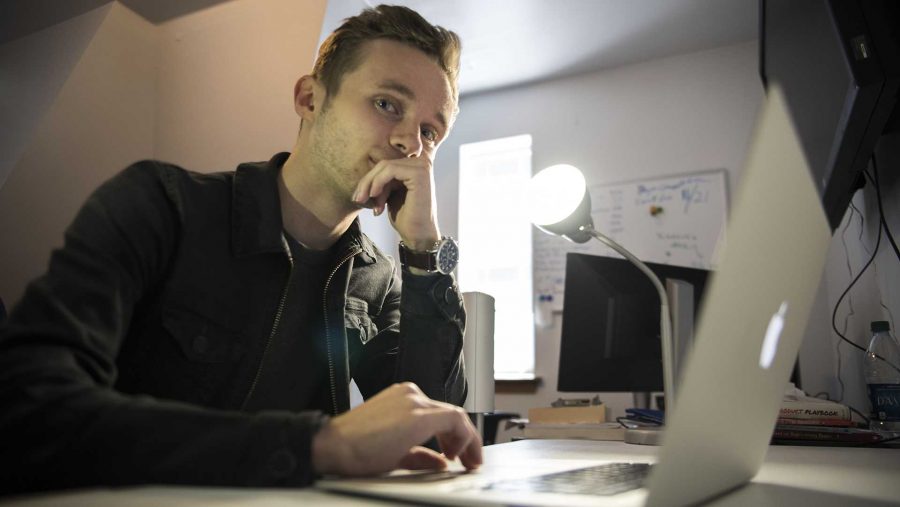ABAL therapeutics is a software startup by three UI students automating autism therapy for children.
By Grace Lynn Keller
[email protected]
Autism therapy is about to become more accessible to families across the country with autistic children.
ABAL Therapeutics is a software startup founded by three UI students looking to innovate the way therapy is administered to children with autism. The program takes exercises usually done by therapists and automates them, allowing therapy to take place anywhere and at any time.
“We take this huge burden of time, 20 to 30 hours a week that a therapist has to put into these exercises, and make it automatic,” said Logan Grote, one of the founders of the program.
The software is an app that is easily downloaded on a tablet; all parents need to do is open the app for their child, and the therapy program begins.
The exercises included in the therapy are meant to build skills and actions, repeating questions until these things become automatic responses for the child.
“They lend themselves really well to be done on a tablet,” Grote said.
Shamus Roeder, another founder, noted that in some cases, children will benefit more from automated therapy than traditional therapy.
“There has already been a number of studies done on the efficacy of tablet-based learning for children with autism, and in all cases, they are either as effective as another human being or are even more effective because these children engage so much with a tablet,” Roeder said.
The alternative is a great way to bypass the time and money spent on human therapy, Roeder said, and is especially helpful for families with economic issues or time constraints.
“For a lot of families, amazing therapy is kept out of reach by incredible cost that can sometimes exceed six figures annually,” Roeder said. “This is making it possible for them.”
Grote noted that currently, there is a very high demand for autism therapy, but there is not nearly a high enough supply of professional therapists able to take on the number of patients needing care.
“If every clinic in the United States was operating at a peak capacity, and every care provider was taking on the maximum number of kids that they could, fewer than 35 percent of kids would be able to access care,” Grote said.
John Courtney, a faculty adviser to the students who created the startup, has worked with the team since he met them at a pitch competition through the university. He said he believes the project is going to make great strides in the field of autism therapy, helping to bridge the gap in care.
“It has the potential to provide a tremendous amount of benefit,” he said. “It’s a tool that complements what a therapist is doing.”
The program, though not released, is in beta testing, and the team is actively seeking families with autistic children ages 3-14 to try the app.
“We have the basic structure built, and quite a few of the exercises, and we’re working on filling out the library and doing some more advanced data manipulation that therapists use to build their curriculum,” Grote said.
The app will be tested through the coming months, with the goal of continuing to help families looking for an alternative way to access therapy for their children.
RELATED: Iowa takes a step forward in autism care







